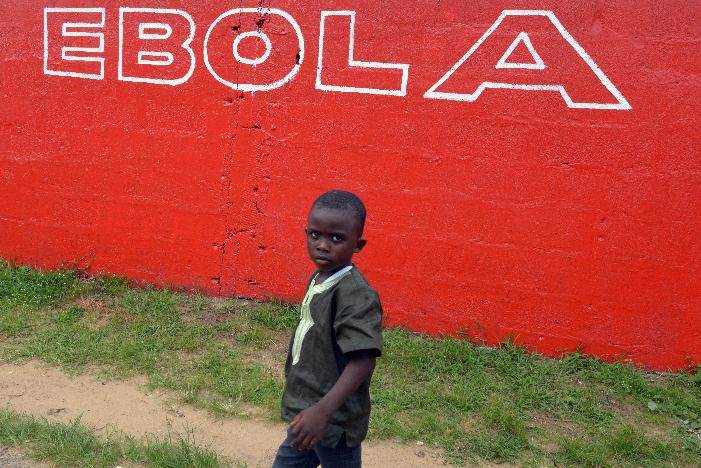Ebola message on the wall Dominique Faget AFP/ file
A majority of Americans want to ban all flights to the United States from West African countries hit hardest by the Ebola outbreak, a new NBC News survey finds.
According to the online poll conducted Tuesday, 58 percent of Americans would support a ban on incoming flights from Liberia, Guinea and Sierra Leone, where there have been more than 8,000 cases of Ebola and 3,857 deaths from the virus since March. Twenty percent of respondents opposed a travel ban, the survey found, and the rest were unsure.
The poll results come a day after the Centers for Disease Control and Prevention and U.S. Customs and Border Protection announced tougher screenings of passengers arriving at five major American airports from those countries.
“We don’t have a lot of margin for error,” President Barack Obama told state and local officials on a conference call Wednesday. “If we don’t follow protocols and procedures that are put in place, then we’re putting folks in our communities at risk.”
The new screenings will begin Saturday at New York City’s John F. Kennedy International Airport and will be implemented next week at Newark Liberty International Airport; Dulles International Airport outside Washington, D.C.; Chicago’s O’Hare International Airport; and Hartsfield-Jackson International Airport in Atlanta. Those five American airports are the places of entry into the United States for 94 percent of U.S.-bound travelers from the countries at the epicenter of the crisis. The screenings are expected to cover about 150 passengers per day.
[Related: Who’s who in the U.S. Ebola scare]
Earlier Wednesday, Thomas Eric Duncan, the first person to be diagnosed with Ebola in the United States, died at Texas Health Presbyterian Hospital in Dallas. Duncan, 42, arrived in Texas on Sept. 20 from Liberia. CDC officials said Duncan didn’t have a fever or symptoms of Ebola when he boarded his flight in Liberia. The flight made multiple stops and included a three-hour layover in Washington, D.C., before arriving in Texas. He fell ill on Sept. 25.
U.S. officials hope the ramped-up screenings will tamp down support for an outright ban — a step health professionals feel would be counterproductive, making it harder to get supplies to doctors on the frontlines.
“Airlines have shut down many flights, and the unintended consequence has been to slow and hamper the relief effort, paradoxically increasing the risk of this epidemic spreading across countries in West Africa first, then potentially elsewhere,” Doctors Without Borders director Christopher Stokes told the Guardian. “We have to stop Ebola at source and this means we have to be able to go there.”
“We very much see this as a global problem, and it needs a global response,” Gemma Parkin, a representative for Save the Children, added. “The countries that are affected should not be left to do all this alone.”














